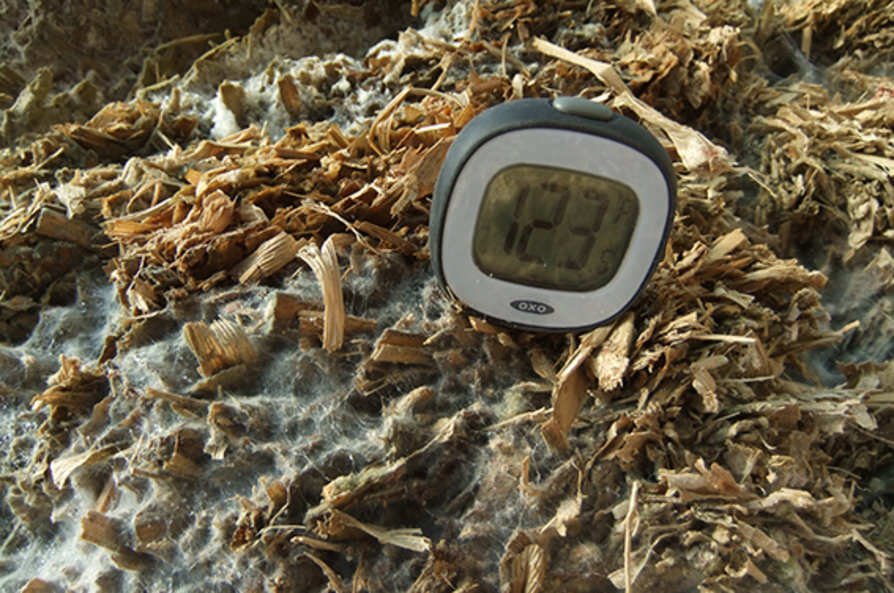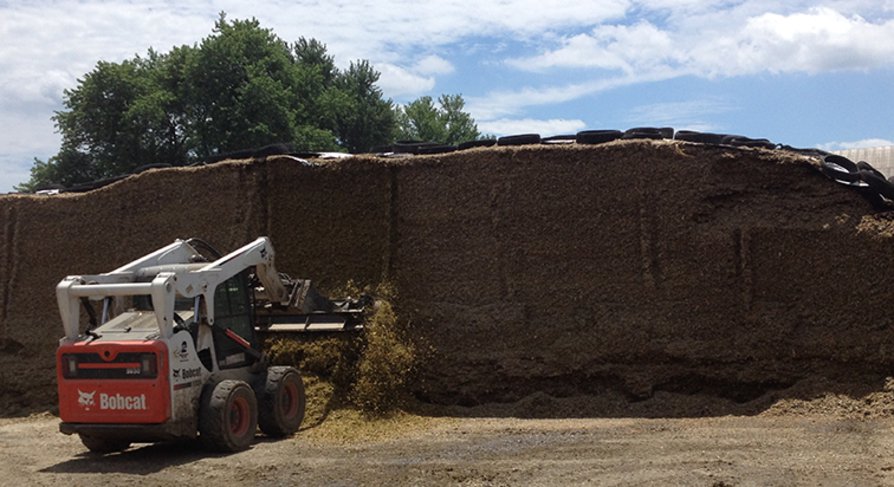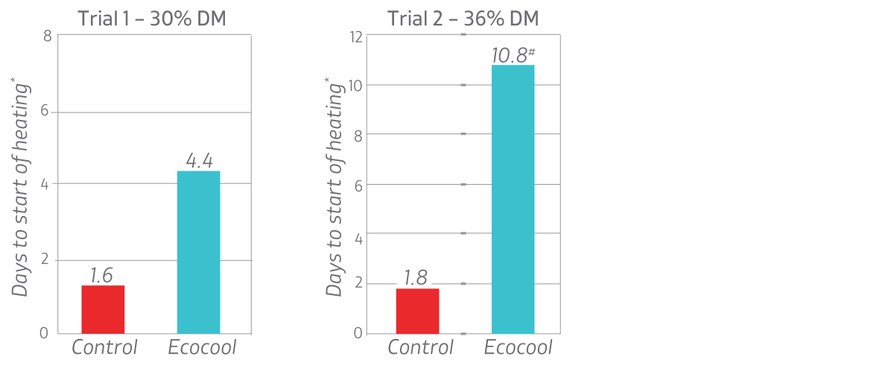Better aerobic stability
Forage that is undergoing aerobic spoilage (heating and molding) will result in potentially extremely high DM losses as well as have a significant impact on animal performance due to reduced palatability, lower feed value and the possibility of mycotoxins production. Animal health and fertility may also be affected.
 Honig (1990) determined that for a silage of 30% DM, every 1°C increase in temperature above ambient would result in a 0.23% per day loss in dry matter. This can soon mount up for a silage that is heating badly, especially if the feedout rate is slow (Table 1).
Honig (1990) determined that for a silage of 30% DM, every 1°C increase in temperature above ambient would result in a 0.23% per day loss in dry matter. This can soon mount up for a silage that is heating badly, especially if the feedout rate is slow (Table 1).
Table 1. DM loss (%)
| Days heating | |||
| Increase in temperature | 3 days | 5 days | 7 days |
| 5 | 3% | 5% | 7% |
| 10 | 6% | 10% | 14% |
| 15 | 9% | 15% | 21% |
Source: Honig 1990
Example
- 0.23% DM per day for every 1°C increase in temperature
- 4 days: 20°C increase
- 18.4% DM loss
- With 30% DM corn silage @ $59 per ton DM (Kingshay, 2015) = $9.20 per ton ensiled
- 1000 ton bunker or pile = $920 loss in feed value
Consequences
High DM losses
- Losses are directly proportional to the amount of heat produced
- Less to feed
- Increases the silage production cost
- Decreases in palatability and nutritional value
- Potential production of mycotoxins
- Severe implications for animal production, health & fertility
Susceptible silages
- Slow feed out
- High DM
- High residual sugars
- Fed in warm weather
- Aerated in TMR
 Improved aerobic stability with proven Ecosyl additives
Improved aerobic stability with proven Ecosyl additives
Ecocool silage additive has been proven to improve the aerobic stability of silages.
Ecocool
In corn silage trials with Prof. Limin Kung at the University of Delaware, Ecocool treated silages were significantly more stable than the untreated controls.
